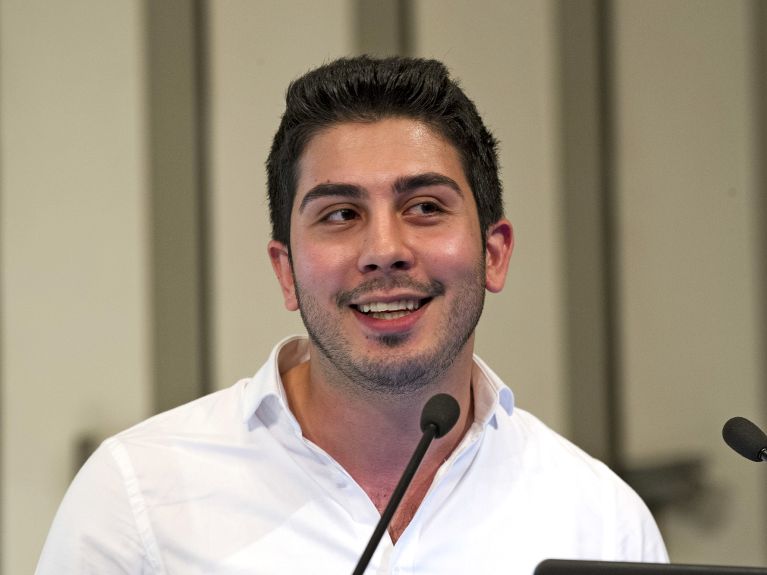Against racism
His “hotline for concerned citizens” provides Ali Can with an unusual opportunity to talk to people who have reservations about refugees.

Germany. Few people even knew who Ali Can was until the autumn of 2016, but today he is one of Germany’s best-known migrants – a speaker who is able to fill large lecture theatres. The 24-year-old is seen as a good example of successful refugee integration. Ali Can is the eldest son of a Turkish-Kurdish family of Alevi faith from southeast Turkey. His parents applied for asylum in Germany when he was two years old.
Voluntary commitment
As Ali Can explains in accentless German, his mother is illiterate and his father completed only primary school. He himself took the Abitur – Germany’s university entrance qualification – and is studying to be a German and ethics teacher in Giessen. Ali Can is not only a sought-after speaker because of his educational biography, however. His public reputation came thanks above all to his voluntary commitment.
Dieses YouTube-Video kann in einem neuen Tab abgespielt werden
YouTube öffnenThird party content
We use YouTube to embed content that may collect data about your activity. Please review the details and accept the service to see this content.
Open consent formIn 2016, Ali Can set up a “hotline for concerned citizen”, taking telephone calls from anyone who has reservations about refugees. He uses his website and Facebook to advertise the telephone number and the times – on two evenings per week – when the hotline will be available. The hotline is used by people who want to vent some of their annoyance, but also by people who want to do something to help refugees. For Ali Can, it is important to respect everyone’s opinion and to initiate a dialogue.
It was a defining experience that gave him the idea: on Facebook he saw how an angry mob in the small Saxon town of Clausnitz stopped and attacked a bus carrying refugees who had come to Germany. He explains that he was “totally shocked” by the attack and asked himself what he could do to combat xenophobia.
Respectful communication helps one to understand concerns and indeed to allay them.
Ali Can travelled to East Germany, to cities such as Dresden, Freital and Bautzen, and talked to people who in his view are “sweepingly branded as racists”. During his trip, he also had some different experiences: “Respectful communication helps one to understand fears and concerns, and indeed to allay them.” Ali Can has published a book outlining what he experienced during his trip and his hotline conversations. His voluntary commitment goes even further: he has founded a non-denominational association named Interkultureller Frieden (i.e. Intercultural Peace) and in late October 2017 organized an anti-racism demonstration in Berlin in which more than ten thousand people took part.
Ali Can continues to travel through East and West Germany, talking about his life and his encounters with xenophobic citizens. And making his remarkable appeal for people to “encounter racists with love”.
Ali Can’s website

